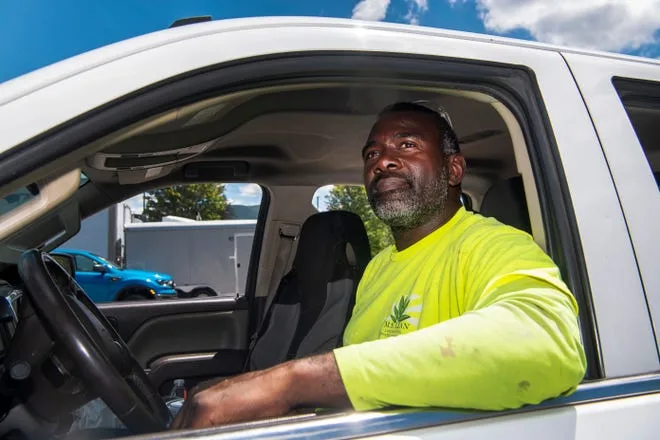
ASHEVILLE – A new city study will examine a five-year window to determine if minority business owners are still getting short changed when it comes to the award of city contracts, or if policy initiated in recent years has been effective in removing some systemic barriers.
A 2018 study found that the vast majority of city contracts went to businesses owned by white men. It established “significant disparities” between the percentage of public dollars spent with minority- and women-owned businesses in the five years prior, and led to the creation of a new Business Inclusion Policy in 2020.
The $319,948 study, conducted by BBC Research and Consulting and examining contracts from 2012 to 2017, found that of the $118 million of contracting dollars, $12.3 million, or 10.4%, were awarded to minority- and women-owned businesses. Of these, only 0.5% of the dollars went to Black-owned businesses.
But has anything changed? That’s what a new comprehensive disparity study from Miller³ Consulting Inc. is intended to find — exploring contract awards from July 1, 2017, to June 30, 2022, determining the effectiveness of the current Business Inclusion program and recommending modifications and adjustments, if necessary.
A Sept. 19 public hearing at the newly-expanded Dr. Wesley Grant Sr. Southside Community Center offered an opportunity for business owners to air their experiences in the local marketplace, including potential barriers, recommendations for improvements or frustrations with the process.
Around 30 people were there, among them a range of experiences — from those who have successfully contracted with the city, to others still attempting to navigate the process or who came away dissatisfied.
The most recent disparity study project kicked off in October 2022 with a $321,748 contract with Miller³. Community engagement began in the spring with interviews, focus groups and public meetings. The study will be completed in October.
“We need to heard your voice, whether it’s positive or negative,” said Michael McKoy of M&V Consulting, a subcontractor of Miller³. The feedback will inform their ultimate recommendations to the city.

What difficulties do minority-owned businesses face?
Once the 2018 study was complete, the city’s first since the ’90s, Frank McGowan, interim assistant director for the city’s Community and Economic Development Department, said they went to work developing a new business inclusion policy.
It included a number of changes intended to create a more equitable system, like establishing annual aspirational and contract-by-contract subcontracting goals, creating a database of available and certified minority and women-owned businesses and requiring prime contractors who are subcontracting to reach out to minority businesses.
“I do feel like we are making efforts as a city to do more outreach and make more resources available to prime contractors, but in terms of: Have we moved the needle?” McGowan said. “That’s what this study is about.”
In a recent story from the Citizen Times, Stephen Smith, owner of MS Lean Landscaping, one of the few Black-owned, Asheville-based landscaping and construction companies, said scarcity of minority-owned businesses is part of the problem. Access to capital is another major barrier.
He was at the Sept. 19 meeting and spoke to the difficulties faced by Black-owned business, a pressure to be forever “juggling” every aspect of their business, a constant grind.
“I think the thing here with the frustration is you have to understand, we as Black people, we don’t have a lot of time. We’re down 50 points in the fourth quarter. That’s just it,” Smith said.
Matthew Bacoate, founder of Asheville Community Enterprises, a Black-owned tech company, said they’ve been “historically left out,” and despite hearing talk about greater equity and inclusion, they aren’t seeing the “tangible proof” that change is happening.
“The playing field isn’t even. That’s the biggest roadblock. Period,” he said. “When you’re working from behind, even if you make certain concessions, you are still way behind. Trying to catch up is a beast. That’s just the fact of it.”
In some ways, the conversations from that night are the same he’s been hearing for 40 years, he said.
Other attendees, like Carl A. Harris, also a Black business owner, said their experience with the city has been positive. The city contracts with Harris through his construction services company. He is part of an effort to connect more minority business owners to the process, and said one of the greatest barriers is learning to navigate the system itself: where to go, who to talk to and how to find the information the city is putting out.
Lauren Miller, an owner and director of business development with Miller³, said the consulting firm has conducted over 140 disparity studies across the country and has engaged companies that increased participation of minority-owned businesses by up to 30%.
“When there is true intentionality from the top, it does trickle down,” she said. “It’s a fight that you’ve got to stay in.”
How can local business owners get involved?
Local business owners and stakeholders can share their insights about working in the local marketplace by emailing the project team directly at CityofAshevilleDS@miller3group.com. Data collected throughout the study will be considered and incorporated into the final report.
For the city to reach minority and women-owned businesses, it is encouraging businesses to register with North Carolina’s Office for Historically Underutilized Businesses, which will allow businesses to be more easily found when contract project managers reach out to businesses.
Interested businesses in the process of HUB certification can find more information at https://evp.nc.gov/.
In an effort to reach more more minority and women-owned businesses to bid on contracts, the Asheville Business Inclusion Office is offering a series of outreach events to business owners at least once a quarter.
What is a disparity study?
According to the city’s project page, found on its website, a disparity study determines whether a government entity, either in the past or currently, engages in exclusionary practices in the solicitation and award of contracts to minority, and women‐owned and disadvantaged business enterprises.
Asheville City Council will hear a presentation on the study at its Oct. 24 meeting.
More:Asheville Black and women-owned contractors lack access to city projects some say
Sarah Honosky is the city government reporter for the Asheville Citizen Times, part of the USA TODAY Network. News Tips? Email shonosky@citizentimes.com or message on Twitter at @slhonosky. Please support local, daily journalism with a subscription to the Citizen Times.


